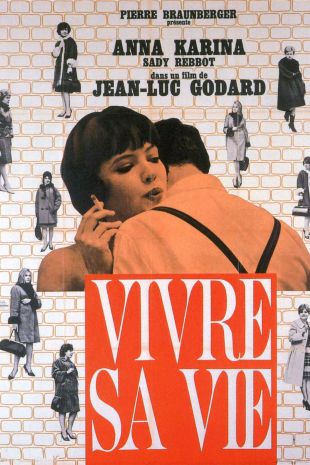
This typically brilliant film from Jean-Luc Godard was made during his blazing period of brilliance in the 1960s, when he seemed to make a movie every few months, all daringly original, and all completely different. Here, Godard casts his then-wife, Anna Karina, as a young woman who drifts into prostitution, shooting the entire film on actual locations in Paris, and making Karina's character, Nana Kleinfrankenheim, both real and accessible to the audience. There is Godard's customary philosophical interlude, in which Nana discusses her life with philosopher Brice Parain (playing himself) in an all-night cafe, and Godard uses very long takes with a pendulum dolly to bring added realism to their encounter. The film is structured in 12 sequences (just as Masculin/Feminin, a Godard film made three years after this, has exactly 15 scenes); one of the most affecting involves Nana attending a revival of Carl Th. Dreyer's The Passion of Joan of Arc (1928), in which she identifies with Maria Falconetti as Dreyer's doomed protagonist. Shedding tears of compassion, Nana watches as Joan is adjudged guilty by an all-male court, and sent to her martyrdom -- an apt reference to Nana's own fate within Godard's film. Fittingly, the entire sequence is absolutely silent, as was Dreyer's film. In another remarkable section, as Nana interrogates her pimp on her duties as a prostitute in voice-over, Godard shows us in a series of quick cuts how mundane and shabby Nana's life will be. Godard's spare, observational style is perfectly in place here, and the film ranks as one of his greatest from his first period as an auteur. Vivre Sa Vie is a remarkable film on many levels, and a devastating commentary on the double standards of patriarchal society.
